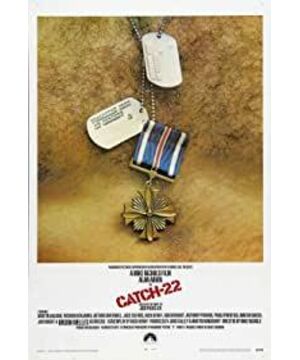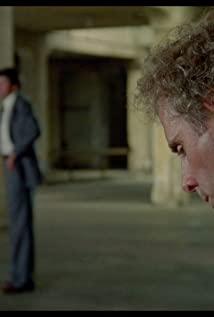It's been nearly ten days since I wrote a review. The reason is that when spring is over and summer is approaching, the old man's resistance has dropped and the heat is unbearable. After thinking about it, I still have to continue to watch the movie and continue to write about my aftermath. Not because I wanted to write, but because I felt it was time to write. Therefore, if there are any absurd points of view and the text is incomprehensible, please forgive me.
Catch-22 was originally a well-known novel, which was adapted into a movie in 1970. Recently recommended by relatives and friends, I watched the six-episode TV series that just came out. As a result, movies and TV series are mixed and matched, and words and images are reflected. The 2019 TV series is based on a 1961 novel about World War II in 1944. My brain is a little messed up.
The film describes the story of the U.S. Air Force stationed in Italy at the end of World War II in 1944. The so-called Article 22 military regulations means that only lunatics can be exempted from flying, but the application must be made in person; at the same time, it also stipulates that anyone who can realize the danger of flying and apply for exemption from flying is a sober person and should continue to implement it. flight mission. The Article 22 military regulations also stipulate that the pilot can return to the country after flying the number of times prescribed by the superior, but it also says that you must absolutely obey the order, or you will not be allowed to return to the country.
This is indeed a bizarre military rule.
I don't know if there really was such a rule in the US military at that time? Or was it made up by the author to show off his dark humor? Is it just to describe the chaos in the army, or to mock the social reality at that time? I myself have never been willing to explore metaphors in movies, so let's limit my thinking to the American military.
According to the social division of labor, the military is a very special industry completely different from other industries. Especially in times of war, it requires those engaged in this profession to use their lives to defend the motherland and defend the people. Therefore, many strict disciplines and systems are stipulated to quickly complete the transition from a civilian to a soldier, so as to ensure the completion of the combat mission, and at the same time protect the life of the soldier to the greatest extent. And these disciplines and systems are often acquired with the lives of countless people and the lessons of war. Although many of these systems may seem unreasonable, they are very effective. It trains an ordinary person into a killing machine that has lost absolute obedience to personal emotions. It looks cruel and ruthless, but it is something that every country must do, and it is also the price that every soldier has to pay.
And when it comes to the twenty-two military regulations, a discerning person can see that this is a very absurd regulation. When you think about it, its absurdity is not in the military regulation itself, but in the fact that its major premise is wrong. Originally, military service is the responsibility of every citizen, which does not include factors such as tenure, salary, etc., only related to the needs of the country. And Americans, perhaps because of the inertia of their business minds, turned the army into an exchange of interests. You can go home as long as you complete the task as many times as you want. This exchange itself dilutes the awareness of the justice of war in people's minds, and weakens the sense of honor of soldiers. In this way, the soldiers do not know what to fight for, just like an ordinary occupation, just want to quickly complete the quota and go home. If you fight Germany and Japan today, you can also fight North Korea and China tomorrow. Anyway, the quota is the same. So there is pretending to be sick and dead, and there are more private exchanges. As long as I don't die, it doesn't matter who the flood is or who it blows up. Even if I can't stand it and want to commit suicide, I have to cut off the body of my comrade first, and I have to shoot the Colonel's cold shot. Officers such as Colonel Ka and the like can use this exchange to do whatever they want, without having to consider the rotation and repair of the troops, or the life and death of the soldiers. What's more, go to make war fortune. Seeing this, people can't help but ask: Who is crazy?
We have this phenomenon more or less here. When I was in the army, I once saw that the front position was in full swing, while a few people in the back were thinking about getting some seven plywood cannonball boxes to pack their clothes. It can be known that human greed and selfish nature are everywhere. It's just that here we are not as unscrupulous as described in the film. In most people's minds, such behavior is also very contemptible.
I also noticed a plot in the film that doesn't seem to be related to the theme of the film. A soldier chats with an old Italian in a bar.
Old man: "You are all crazy."
Soldier: "Why?"
Old man: "Because you don't know how to survive, that's the mystery of life."
Soldier: "But we're going to win the battle."
Old man: "But America will lose and Italy will win."
Soldier: "America is the most powerful country in the world. American soldiers are the best trained and best equipped."
The old man: "Yes, Italy is the weakest country in the world, and the Italian army does not have any equipment. Therefore, our country is at an advantage, and your country is at a disadvantage."
Soldier: "Nonsense, Italy was successively occupied by Germany and the United States, how could that be an advantage?"
Old man: "Of course it is. The Germans have been driven away, and we are still here. In a few years, when you leave, we will still be here. Italy is a very poor and weak country, and that is what makes us strong. Let us Survive the war and live forever. And your country is destroyed."
Soldier: "What nonsense are you talking about? America will not be destroyed."
Old man: "Never? Rome has been destroyed, Greece has been destroyed, Spain has been destroyed, all the great powers, why is America an exception? How long do you think America will be around? Forever?"
Soldier: "Always a long time."
I have to say that this old man is a master of dialectics. What he said is that history is a law. Once upon a time, the Qin Empire II, who had hoped for eternity, died, and Spain, known as the "Invincible Fleet", has long been lonely and desolate, and the citizens of the former "Empire on which the Sun Never Sets" can only watch the sunset by the Thames River. Not to mention the great Roman Empire. At the beginning, the commander of the Roman Empire, Scipio the Younger, cried bitterly after the fall of Carthage. He said: "This was once a great nation, with vast territories and dominion over the seas, but it was unavoidable to perish. Think of the Assyrian Empire, the Persian Empire, the Macedonian Empire, and the proud Troy, and the Which can avoid such an ending. I'm really afraid that someone will do the same to my country in the future." Little Scipio's words finally came out unfortunate.
Anyone or any country has a glorious moment, and there is a day of prosperity and decline. This kind of rise and fall has nothing to do with politics, economy, or ideology. All driven by God, God, or what we call objective laws. What a wise man, a great country can do, is to see this inevitable trend like little Scipio in this period of prosperity and decline, so that he will suffer less and his people will avoid more. s pain. It is not to be proud of the momentary joy, nor to enjoy the short-term benefits, nor to act as the world policeman still in a hurry.
My rating: 7.5.
View more about Catch-22 reviews











